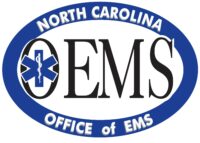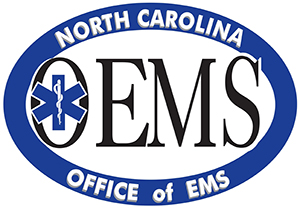General Statement of Job
The Emergency Medical Services Instructor is responsible for the planning, delivery, and evaluation of classroom, laboratory, and/or clinical instruction and providing those related services and support activities required for optimal student learning and effective educational programming, as well as preparing students for successful careers in emergency medical care. Reports to the Director of Emergency Services
Essential Job Functions
Teaches a minimum of 18 contact hours per week in a flexible schedule as determined by the needs of the program and as approved by the director. Release time may be approved by the director as needed.
Develop and deliver engaging lectures, discussions, and practical demonstrations in EMS courses, covering topics such as emergency medical procedures, patient assessment, and trauma care. Utilize a variety of instructional methods and resources to accommodate diverse learning styles and promote student engagement.
Teaches all courses, as assigned, for the full duration of scheduled instruction.
Assist in the development and revision of EMS curriculum, ensuring alignment with program objectives, industry standards, and regulatory requirements. Incorporate current evidence-based practices and emerging trends in EMS into course content.
Be fully prepared with a syllabus and instructional plans for each class session in accord with the stated objectives of the course; ensures instructional materials and activities are relevant and engages student in the learning process.
Assumes responsibility for laboratory/classroom preparation, including maintenance and cleanup, and recommends, as necessary, appropriate laboratory supplies and equipment needed for instruction.
Provides regular, accurate, and timely feedback to students including grading of assignments; is available to students requiring additional assistance.
Design and administer assessments to evaluate student learning outcomes and proficiency in EMS skills. Provide timely feedback to students on their performance and progress, offering guidance for improvement as needed.
If teaching online, actively participates in the learning process with students via phone, email, discussion forums, chats, and/or face-to-face meetings; motivates online learners to become part of the online learning community by providing synchronous and/or asynchronous learning activities.
Contributes to the development, implementation, and evaluation of curriculum and utilize available educational resources for the improvement of instruction and the creation of teaching materials.
Assists in the development and revision of course outlines, syllabi, curriculum plans, and other instructional documentation required to meet program objectives.
Assists in the identification, development, preview, and acquisition of educational resources and supplies required to meet program objectives and improve instruction.
Serves as educational advisor to students and participates in semester advising and registration activities as requested or as needed by individual students.
Participates in recruitment activities.
Supervise and mentor students during clinical rotations and field experiences, ensuring adherence to established protocols and safety standards. Facilitate debriefing sessions to help students reflect on and learn from their clinical experiences.
Enforces academic policy and procedures at all times; complies with all institutional rules and regulations pertinent to classroom, laboratory, and/or clinical instruction and general employment.
Maintains posted office and on-campus hours sufficient to fulfill all contracted duties and individual professional obligations, as well as meet the needs of the program, division, and college.
Maintains complete office and student records as needed; processes and/or submits reports, forms, and all other required paper and electronic documentation in a timely, efficient manner, checking for the accuracy, correctness, and completeness of all data.
Participates in student disciplinary proceedings and grievance procedures.
Represents the program, division, and college in institutional assignments, community affairs, and professional activities.
Participates in program, divisional, and institutional meetings, committees, and other announced activities.
Stay abreast of advancements in EMS education and practice through participation in professional development activities, conferences, and workshops. Maintain current certifications and licensures required for EMS instructors, participating in continuing education as necessary.
Fulfills committee assignments and other special appointments within the college and community, and otherwise, gives appropriate support to college endeavors.
Attends in-service training and other professional development opportunities, including attendance at off-campus activities, as feasible, to stay current with developments in the field of instruction.
Provide academic and career advising to EMS students, offering guidance on course selection, certification pathways, and professional development opportunities. Serve as a resource for students seeking guidance on academic and personal matters related to their EMS education.
Keeps all sensitive information protected and strictly confidential; maintains confidentiality in accordance with college, FERPA, and HIPAA requirements.
Maintains proper communication and supportive relationships at all times with all work units of the division, college, and designated clinical agencies, providing assistance to them in carrying out their respective functions.
Completes duties and responsibilities in compliance with college standards, policies, and procedures.
Attends the workplace regularly, reports to work punctually, and follows a work schedule that meets the needs of the program, division, and college.
Assumes other necessary responsibilities and performs additional tasks as assigned in meeting the needs of the program, division, and college.
Upholds the principles of professionalism and displays a professional image and good character at all times.
Normal Working Hours: A minimum of a 40-hour work week is required as determined with the supervisor to allow the employee to fulfill the essential job functions, which may include occasional evening and/or weekend hours. Faculty are required to show a minimum of 30 hours on campus on their official teaching schedules. It is understood that the remaining 10 hours of the 40-hour work week may be fulfilled at the workstation and time most appropriate to the faculty in completing their instructional assignments. It is further understood that the faculty may be required to be on campus beyond the officially scheduled 30 hours to meet the needs of the program, division, and/or college at the discretion of their supervisor and/or division dean.
Qualifications or Standards
Associate degree in a related field (EMS, Nursing, Healthcare, Education, etc.), or related work experience with degree, or able to obtain in one year. North Carolina Instructor Level one, or able to obtain within one year. Current certification as an EMS Paramedic. Prior teaching experience in EMS education preferred. Strong clinical experience in emergency medical services. Excellent communication and interpersonal skills, with the ability to effectively engage and motivate students. Commitment to promoting diversity, equity, and inclusion in the classroom and beyond. Proficiency in instructional technology and learning management systems. Ability to work collaboratively with colleagues and contribute to a positive team environment.
Minimum Training and Experience
Physical Requirements: Requires the ability to operate a variety of types of office, instructional, and medical equipment including computer, copier, calculator, audio-visual equipment, etc. Requires the ability to exert up to twenty five pounds of force occasionally and/or a negligible amount of force frequently and to frequently lift, carry, push, pull, or otherwise move objects. Physical demands are in excess of sedentary work. Requires the ability to walk, stand, stoop, reach, crouch, kneel, finger, grasp, etc. for extended periods of time. Must be able to lift and/or carry weights of approximately thirty pounds. Requires the ability to perceive attributes of objects such as size, shape, temperature, or texture by means of receptors in skin, particularly those of the fingertips.
Data Conception: Requires the ability to compare and/or judge the readily observable functional, structural, or compositional characteristics (whether similar to or divergent from obvious standards) of data, people, or things.
Interpersonal Communication: Requires the ability of speaking and/or signaling people to convey or exchange information, including the giving and receiving of instructions, assignments, or directions.
Language Ability: Requires the ability to read a variety of electronic and hard-copy documents, reports, and forms such as manuals, student handbook and catalog, various texts, etc. Requires the ability to prepare various documents and reports such as lesson plans, grade/evaluation reports, attendance reports, book orders, budgets, assessment plans, etc., using the proper format, punctuation, spelling and grammar. Requires the ability to communicate with others with poise, voice control, and confidence. Requires the ability to be conversant in the theory, principles, and methods of effective and persuasive speaking, voice and diction, phonetics, and discussion and debate.
Intelligence: Requires the ability to apply principles of logical or scientific thinking to a wide range of intellectual and practical problems, deal with nonverbal symbolism in its most difficult phases, deal with a variety of abstract and concrete variables, and comprehend the most abstruse classes of concepts.
Attention: Requires the ability to demonstrate good selective, sustained, alternating, and divided attention when interacting with others.
Verbal Aptitude: Requires the ability to record and deliver information, explain procedures, and follow verbal and written instructions.
Numerical Aptitude: Requires the ability to utilize mathematical formulas to add, subtract, multiply, and divide; determine percentages and decimals; determine time and weight; apply algebraic principles; and utilize descriptive statistics.
Form/Spatial Aptitude: Requires the ability to inspect items for proper length, width and shape.
Motor Coordination: Requires the ability to coordinate hands and eyes rapidly and accurately when utilizing a variety of equipment including automated office equipment, instructional equipment, medical equipment, etc.
Manual Dexterity: Requires the ability to handle a variety of items including office equipment, medical equipment, control knobs, switches, etc. Must have high levels of eye/hand/foot coordination.
Visual Acuity: Requires the ability to have close visual acuity to perform activities such as preparing and analyzing data and figures, viewing a computer terminal, expansive reading, visual inspection involving small defects, small parts and/or operation of equipment, using measurement devices, etc.
Color Discrimination: Requires the ability to differentiate colors and shades of color.
Interpersonal Temperament: Requires the ability to deal with people beyond giving and receiving instructions. Must be adaptable to performing under high stress when confronted with an emergency.
Physical Communication: Requires the ability to talk and hear (talking – expressing or exchanging ideas by means of spoken words; hearing – perceiving nature of sounds by ear).
Pitt Community College provides a wide variety of benefits available to full time employees. These benefits include: health, dental, vision, life insurance, optional life and disability insurance plans, flexible spending account for health care/dependent care, NC State Retirement, and a deferred compensation program (401K, 457, 529).
Pitt Community College also offers leave based on years of service (vacation, sick, FMLA) in addition to paid holidays and longevity.
Pitt Community College provides a comprehensive Employee Assistance Program (EAP) through McLaughlin-Young Group. Employees and eligible dependents are provided up to three counseling sessions per year, per topic. In addition the EAP offers individualized online resources for work-life balance.
Pitt Community College provides equal employment opportunities to all employees and applicants for employment and prohibits discrimination and harassment of any type without regard to race, color, religion, age, sex, national origin, disability status, genetics, protected veteran status, sexual orientation, gender identity or expression, or any other characteristic protected by federal, state or local laws.
This policy applies to all terms and conditions of employment, including recruiting, hiring, placement, promotion, termination, layoff, recall, transfer, leaves of absence, compensation and training.
Certification Level: Paramedic, Other Credentialed
County: Statewide (No County)
Closing Date (if any):

